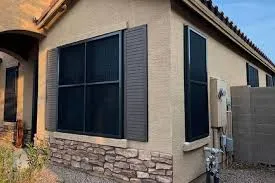-
+86 15030157877
-
sales@galvanizedmetalmesh.com
Nov . 16, 2024 21:02 Back to list
Exploring Global Wire Mesh Manufacturing Companies and Their Innovations
Wire Mesh Factories An Overview of Production and Applications
Wire mesh, a versatile material made from interwoven metal strands, has become an indispensable component across various industries. Wire mesh factories play a crucial role in the production of this material, catering to a diverse range of applications that require strength, durability, and reliability. From construction to agriculture, the significance of wire mesh cannot be overstated.
The production process in wire mesh factories typically begins with the selection of high-quality raw materials. Stainless steel, galvanized steel, and aluminum are among the most commonly used metals for wire mesh manufacturing. These materials are chosen for their inherent properties, which include resistance to rust, corrosion, and extreme temperatures. Once the materials are selected, they undergo a series of processes, beginning with wire drawing, where large coils of wire are pulled through progressively smaller dies to achieve the desired thickness.
After the wire is drawn to the correct gauge, it is subjected to a weaving process. Wire mesh factories use various techniques to weave the wire, with the most common being plain weaving and welded mesh techniques. In plain weaving, wires are interlaced in a crisscross pattern, while welded wire mesh involves fusing the wires at their intersections using high temperatures. Each method yields different characteristics, making it suitable for specific applications. For instance, welded wire mesh tends to be stronger and more rigid, often used in construction and fencing, while woven wire mesh offers flexibility and is ideal for filtration and separation applications.
wire mesh factories

Once woven, the wire mesh is cut to size, finished, and treated to enhance its properties. This may involve processes like galvanization, where a protective zinc coating is applied to prevent corrosion, or powder coating, which enhances aesthetics and adds an extra layer of protection. Quality control is paramount at this stage; factories conduct rigorous inspections to ensure that the finished products meet industry standards and customer specifications.
The applications of wire mesh are vast and varied. In the construction industry, wire mesh is primarily used for reinforcement in concrete structures, providing additional support and durability. In agriculture, it serves as fencing material to protect crops from wildlife or livestock. Furthermore, wire mesh is widely used in filtration systems, offering solutions for industries that require sand, water, or air filtration. Its versatility extends to the automotive sector, where it’s utilized in exhaust systems and sound dampening applications.
As industries continue to innovate and evolve, the demand for high-quality wire mesh remains robust. Wire mesh factories are at the forefront of this evolution, leveraging advanced technology and sustainable practices to meet the needs of their customers while minimizing environmental impact. In the coming years, we can expect further advancements in wire mesh production techniques, leading to even greater applications and uses, ensuring that this material remains a crucial part of our industrial landscape.
In conclusion, wire mesh factories play a pivotal role in the manufacturing and supply of a material that underpins numerous sectors worldwide. Their commitment to quality and innovation ensures that wire mesh will continue to be at the heart of many applications, providing strength and utility for years to come.
-
Hexagonal Gabion Mesh: Durable Stone Cages for Landscaping
NewsJul.22,2025
-
Premium Black Brick Welded Mesh - High Strength & Corrosion Resistant
NewsJul.21,2025
-
AI SEO Optimizer
NewsJul.20,2025
-
High-Quality Chicken Wire Panels Leading Manufacturer & Exporter
NewsJul.08,2025
-
High-Quality Concrete Reinforcement Wire Mesh – Reliable Steel Mesh Manufacturers & Exporters
NewsJul.08,2025
-
High-Quality Aluminum Expanded Mesh Leading Manufacturers & Exporters
NewsJul.08,2025



